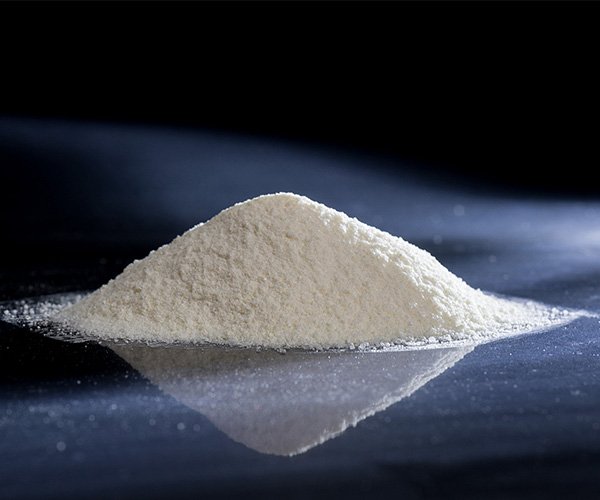Gamma-polyglutamic acid (γ-PGA) is a naturally occurring biopolymer primarily produced through microbial fermentation, commonly from Bacillus species. Structurally, it is a polymer of the amino acid glutamic acid, linked through gamma peptide bonds. γ-PGA applications in agriculture are gaining attention for its remarkable benefits in promoting sustainable farming.
Advantages of Gamma-Polyglutamic Acid in Agriculture
1. Water Retention and Soil Moisture Regulation
One of the standout features of γ-PGA is its extraordinary ability to retain water. It can absorb hundreds of times its weight in water, forming a gel-like structure that helps retain soil moisture. This property is particularly beneficial in arid and semi-arid regions where water scarcity can impede crop growth. By enhancing water retention, γ-PGA reduces the need for frequent irrigation, conserving valuable water resources.
2. Nutrient Absorption Enhancement
Gamma-polyglutamic acid enhances the bioavailability of essential nutrients in the soil. It forms chelates with metal ions such as calcium, magnesium, and potassium, preventing them from being easily leached away. This promotes better nutrient uptake by plants, improving their overall growth and productivity. Additionally, γ-PGA can slow down the release of fertilizers, optimizing their effectiveness and reducing the environmental impact of excess fertilizer use.
3. Biodegradability and Environmental Safety
As a naturally occurring biopolymer, γ-PGA is fully biodegradable and environmentally friendly. It breaks down into non-toxic compounds that can be safely absorbed by the soil without causing any harm to the ecosystem. This makes it an excellent alternative to synthetic soil conditioners and water-retention agents that may persist in the environment and pose long-term risks.
4. Plant Growth Promotion
Research has shown that γ-PGA can stimulate root development and increase the plant’s resistance to stress factors such as drought, salinity, and temperature fluctuations. This leads to stronger, more resilient crops that can thrive under challenging conditions, ultimately improving yields and ensuring food security in a changing climate.
Suggested Application Methods
To maximize the benefits of gamma-polyglutamic acid in agriculture, it is recommended to use it as part of an integrated soil and crop management strategy. Here are a few suggested application methods:
- Soil Amendment: γ-PGA can be mixed with the soil before planting to improve its water retention capacity and nutrient availability. This method is especially useful for sandy or degraded soils with poor structure.
- Seed Coating: Treating seeds with a solution containing γ-PGA can improve germination rates and early root development by providing immediate access to water and nutrients.
- Foliar Spray: A foliar application of diluted γ-PGA solution can help enhance nutrient absorption directly through the leaves, improving plant health during critical growth stages.
- Fertilizer Additive: Mixing γ-PGA with conventional fertilizers can slow nutrient release, enhance efficiency, and reduce environmental impact, making it a sustainable choice for modern agriculture.
Gamma-polyglutamic acid represents a promising advancement in sustainable agriculture. γ-PGA has below abilities:
- Retain water
- Enhance nutrient absorption
- Promote plant growth
- Being biodegradable and environmentally friendly
That makes it an ideal solution for addressing many challenges faced by farmers. As agriculture continues to evolve, the application of γ-PGA could become an essential tool. It helps ensure higher yields, better resource management, and more resilient crops. This leads to a more sustainable future for global food production.
By incorporating γ-PGA into modern agricultural practices, farmers can expect improved crop health and productivity. This ensures environmental sustainability and economic viability.


